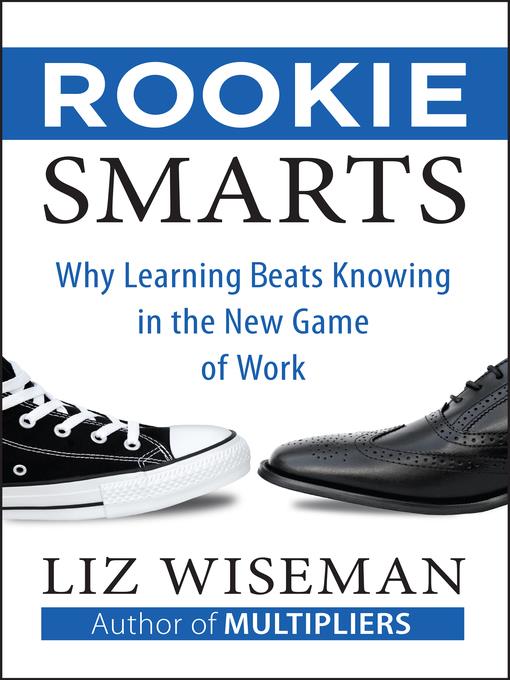
Rookie Smarts
Why Learning Beats Knowing in the New Game of Work
کتاب های مرتبط
- اطلاعات
- نقد و بررسی
- دیدگاه کاربران
نقد و بررسی

August 4, 2014
Given the author’s experience—Wiseman (Multipliers) helped build Oracle’s corporate university and is the president of a Silicon Valley–based research and development firm—it’s no shock that she offers an exceptional guide to staying vital in the changing marketplace. Wiseman targets mid-level professionals who want to revitalize their careers, as well as company leaders who want to invigorate their workforce. Her premise is simple: in a culture “obsessed with youth,” the key to success comes from “thinking young.” Wiseman explains why a rookie or “newcomer” approach will often be more effective than a tried-and-true strategy. For example, while the experienced manager will “collaborate alone,” a rookie rounds up a “network of experts.” A rookie who lacks “situational confidence” will pay more attention to negative feedback and work harder than an experienced counterpart. Each chapter concludes with a helpful summary that compares rookie and veteran behavior. Throughout, Wiseman cites a wide array of successful rookies and “perpetual rookies,” from the founder of Spanx (an example of “relentless resourcefulness”) to basketball great Magic Johnson, to photographer Annie Leibovitz, to business consultant Peter Drucker. Useful “discussion fire starters” are peppered throughout and gathered in an appendix for quick reference. For readers who are struggling to catch up with changing business needs, this book is a must read. Agent: Shannon Marvin, Dupree Miller & Associates.

October 15, 2014
Wiseman (co-author: The Multiplier Effect: Tapping the Genius Inside Our Schools, 2014, etc.) provides a big boost for first-time employees and others who refuse to be bound by arbitrary limits. The author poses a fundamental question: "If the amount of information in science doubles every nine months and decays at 30 percent a year, how long does one's expertise last?" She contends that as technology continues to advance, the time frame dramatically shortens. People will be lucky to be current on just 15 percent of what they knew after five years. Therefore, the premium on new knowledge, as opposed to experience, is growing. Wiseman presents an array of case studies, including those from her own experience with Nike and her organization of Oracle's in-house university. These demonstrate that leaders who understand how to unleash the potentials of their rookies and junior people can reap outsized results. At Nike, rookies were given the task of educating a conference of executives on their views of the future. They performed so well that they were organized into an informal group called the "New Crew." The group is now formalized and contains 300 members, "with top-performing employees contributing and then rotating out of the group after one year, making way for other fresh talent." Wiseman points to global organizations that are opening up their leadership ranks to younger people, and she highlights studies about how, in certain nations, when "ruling elites have pulled up the ladder and kept newcomers from getting a foothold, their economies have suffocated and died." The author views rookie smarts as a "state of mind" characterizing open-minded love of inquiry into the new. She examines four different profiles of this state of mind, each of which encompasses its own set of defining characteristics, and she highlights how they may be encouraged and strengthened. An exciting promotion of lifelong discovery and enthusiasm as answers to routine and business as usual.
COPYRIGHT(2014) Kirkus Reviews, ALL RIGHTS RESERVED.

























دیدگاه کاربران